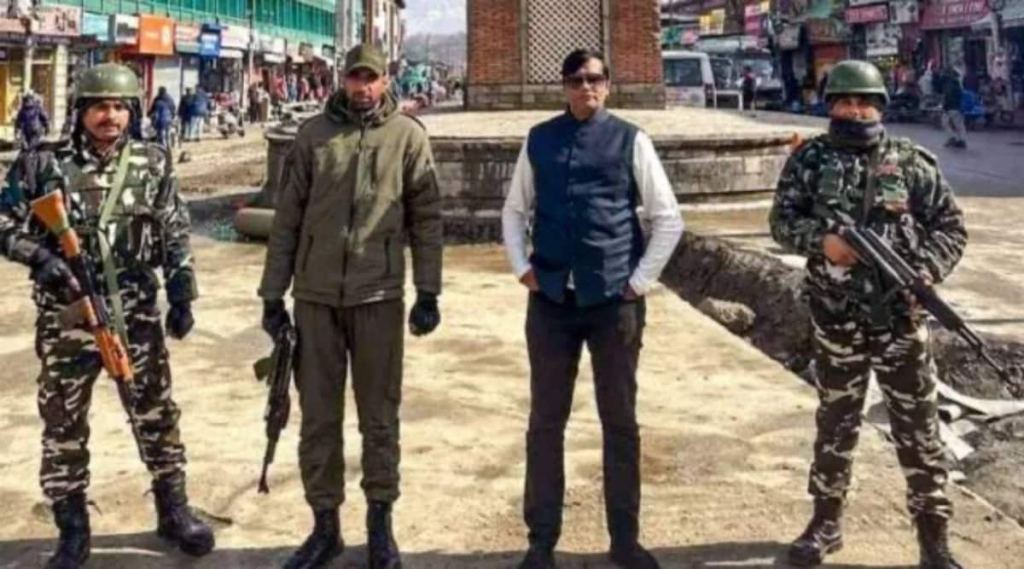Ifla Aijaz
In a recent incident that shook the district of Budgam, a woman was apprehended by local law enforcement for impersonating an IPS officer. Her audacious act not only involved deceit but also capitalizing on the connections she claimed to have within the administration. While this case is alarming, it is far from isolated, with a growing number of impostors attempting to defraud and manipulate people by posing as officials in positions of high command.
Law enforcement agencies have been grappling with a surge in cases involving fraudulent individuals exploiting their fake identities. These impostors prey on the trust people place in authorities, often leaving a trail of victims and financial losses. Unfortunately, it’s not just the police department that falls prey to such fraudulent activities.

Impersonation: A Growing Concern
The impersonation of police officers, like the case in Budgam, poses a severe threat to public safety. These impostors can misuse their fake authority to intimidate or extort innocent citizens. In some instances, they have been known to create fake warrants or demand bribes, taking advantage of the fear and respect associated with law enforcement.
This alarming trend is not limited to the police force. Incidents of fake doctors practicing in hospitals have raised serious concerns about healthcare standards and patient safety. In the case of Lal Ded Hospital, a fake doctor was arrested while operating in the labor room, an area of utmost sensitivity. The potential risks associated with unqualified medical personnel performing critical procedures are substantial. Hospitals, like other institutions, need to implement stringent verification protocols for staff credentials.
The Elusive Conman: Kiran Patel’s Deception
One of the most astonishing cases involved a con man named Kiran Patel, who masqueraded as a high-ranking official from the Prime Minister’s Office (PMO) in New Delhi. Patel’s audacity was exemplified by the fact that he not only claimed this false identity but was also provided with top-level security, including Z+ protection. His brazen acts even extended to holding meetings with district magistrates, further highlighting the systemic vulnerabilities that impostors exploit.
The Kiran Patel case serves as a stark reminder of the lengths to which these impostors will go to perpetuate their deception. The incident underscores the need for improved security and authentication measures, especially in sensitive government settings.
Addressing the Growing Threat
These incidents underscore the pressing need for enhanced vigilance and security measures to combat this growing threat. Authorities must strengthen their verification processes and ensure that individuals in positions of authority can be easily authenticated. This includes rigorous background checks, cross-referencing with relevant authorities, and verification of credentials.
Moreover, public awareness and education are essential in preventing individuals from falling victim to such impostors. The importance of verifying the identity of those in authoritative positions cannot be overstated. Citizens must be cautious and vigilant when interacting with individuals claiming to be officials in high command, especially when there are unusual or suspicious requests or demands involved.

The Way Forward
In conclusion, the rise of impostors fraudulently acting as officers in various departments is a cause for concern that demands immediate attention. Such incidents not only erode public trust but can lead to significant harm and financial loss. Combating this menace requires a joint effort between law enforcement agencies, institutions, and the public to ensure the authenticity of those in positions of authority and protect society from these deceptive individuals.
While the cases discussed in this article are unsettling, they can serve as a catalyst for necessary reforms. Strengthening security, improving verification processes, and enhancing public awareness are steps toward ensuring that individuals in positions of authority truly represent what they claim to be, ultimately protecting the trust and well-being of the public. The fight against these impostors must continue to evolve, adapting to the ever-changing strategies employed by those seeking to deceive and exploit.



